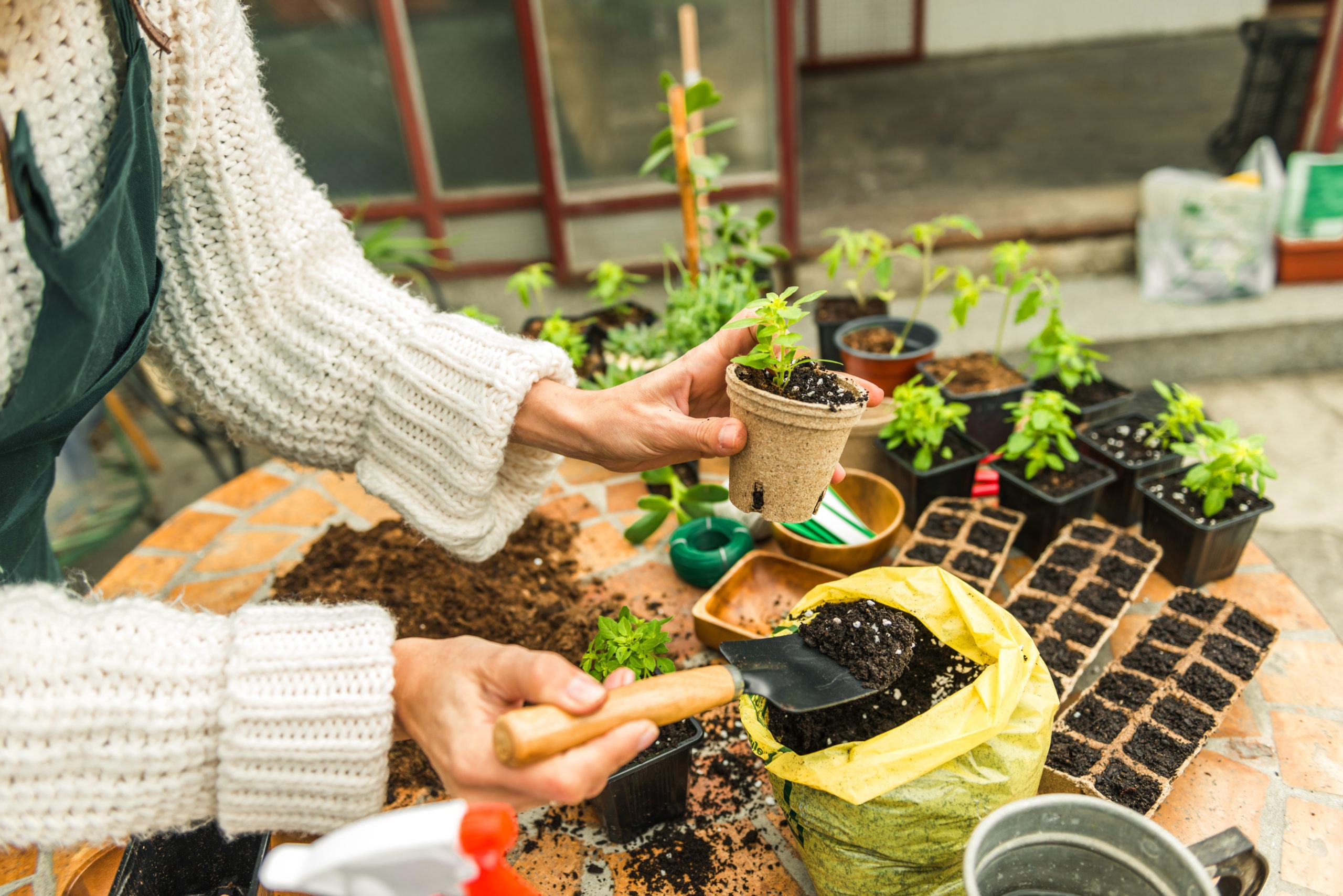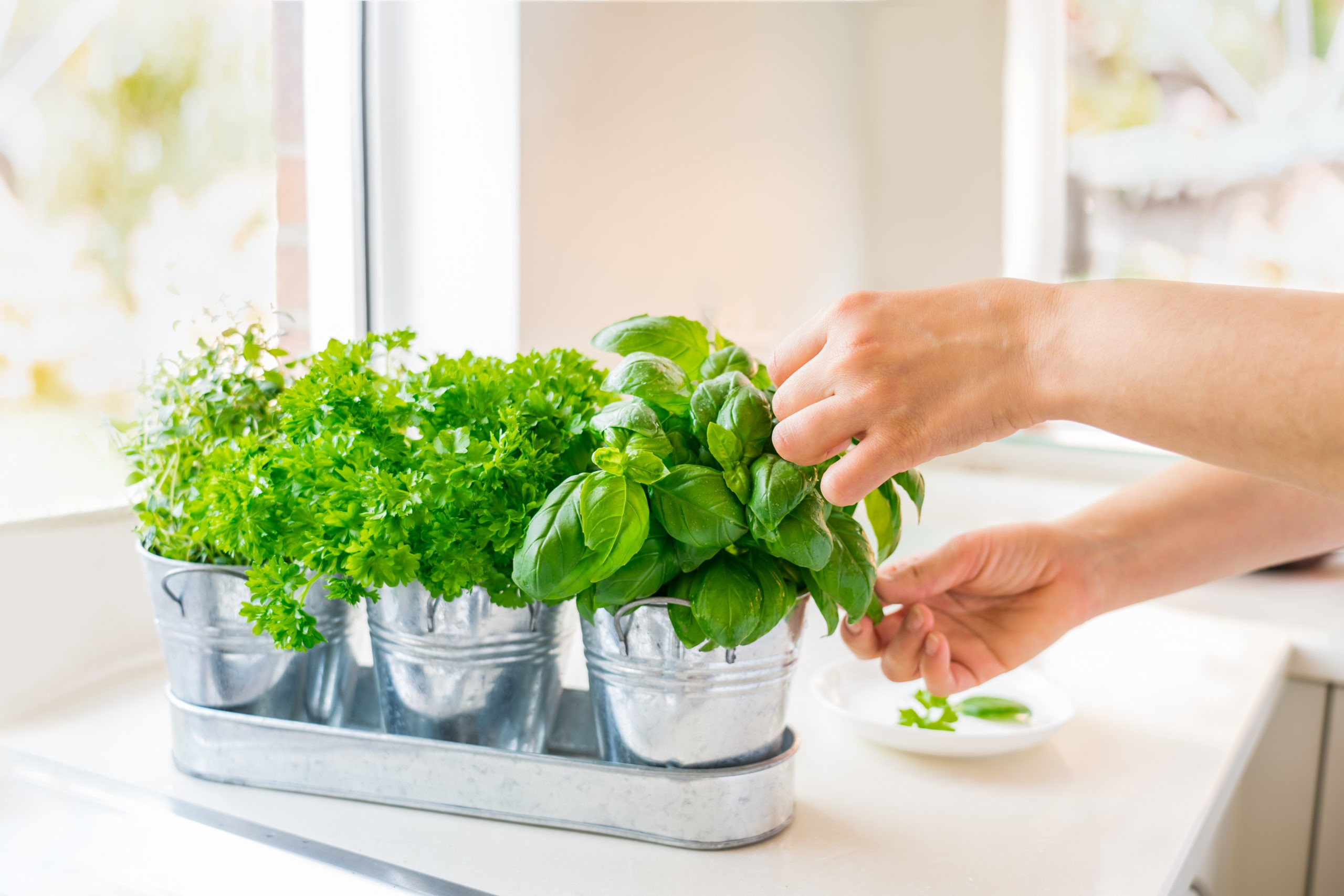While many people continue to stay at home more preferably than going outdoors due to the ongoing pandemic, it’s high time to broaden your gardening hobby. Whether it’s your first time gardening or you’ve already started not so long ago, it’s a great idea to explore planting edible plants, particularly herbs. Aside from keeping you busy, they’re a must-have in adding flavor and aroma to your homecooked meals.
Having fresh herbs straight from your garden will allow you to save costs on your fresh ingredients. These herbs add a punch of taste right into any dish: protein, pasta, fish, and veggies. The great thing about herbs is that they can be cared for both indoors and outdoors. With basic gardening knowledge and commitment to start an herb garden, you can take advantage of fresh herb seasonings for your kitchen dishes.
To get you started, apply the following gardening secrets for your herb plants:
1. Harvest And Care For Your Herbs
Herbs need constant and regular care to thrive. To maintain their health, they need to be watered regularly and be placed under the sun for a few hours every day. Additionally, you’ll need to harvest them frequently so that they can grow again. It’s also worth mentioning that some herbs and plants require different water requirements. Water for cannabis growth may be different than water for other herbs.
2. Avoid Using Rich Soils
One of the good things about growing herbs is that they don’t care about what soil they grow in. Well-drained soil is all they require. However, one important rule is not to use compost-rich soil. These won’t do your herbs any good.
Don’t bother spending money to buy the best soil you can find. The truth is your herbs can grow even in the most basic and straightforward soils for gardening. When you happen to use heavy soil, keep it drained first before planting herbs.
3. Decide The Best Location
While it’s true that most herbs can be grown indoors and outdoors, most of them usually love and require sunlight. Make it a habit to place them under the sun daily for at least six hours. After which, you can put them back to their indoor spots again. It’s best to keep herbs growing in the morning sun followed by afternoon shade during the summer season. Be familiar with the different types of gardening tools and practices to make the most of your herb garden.
4. Use The Right Pots Or Containers
Herb gardens at home are ideal because they’re always ready. You can harvest a few strands and leaves to toss into your pasta dish. Basil, rosemary, thymes, and other herbs are common ingredients that elevate the taste of any dish you’re cooking at home. When it comes to preparing your herb garden, it’s best to secure pots and containers to transport and carry them easily. You may transfer them to different areas like the porch, balcony, kitchen, and indoor shelves. Having a suitable pot will allow you to bring them anywhere easily.
Containers come in a variety of materials. You can choose between wood, metal, ceramic, clay, or resin. Depending on your preferences, you can select one that’s convenient to carry. However, it’s also crucial to find a pot that comes with good drainage. It’s essential to drain excess water from any pot or planter, which is why most of them have holes in the bottom.
Avoid using planters that don’t have holes as their roots might rot if they don’t get drained. You should also choose a container that’s the same size as the herbs you’ll be growing. Be mindful about the size as too large pots may waste away the plant’s energy while growing, and too small containers might suffocate and cramp your herb planter, which can stress or hinder their healthy growth. It’s critical to find the perfect size for them.
5. Go For Starter Plants
If you’re not experienced in gardening, it’d be best to begin with starter plants when it comes to growing herbs. The result is a two- or three-week reduction in growth time and a better chance of developing a successful crop. Find the best starter plants in plant stores, and make sure to inquire how to care for and nurture them properly. Remember that your ultimate goal is to allow the herbs to grow and provide more harvest. Start with the great herbs to grow in pots and go from there.
6. Prune
Trimming healthy herbs is hard, especially when you’re not going to use them for cooking. Some people feel it’s a waste of herbs, but the truth is pruning them will encourage more growth. Herbs will eventually bloom as they grow. Once it flowers, there will be no new foliage growth on that stem. Therefore, pruning them will help promote foliage growth. Maintaining a healthy plant requires pruning herbs.
Conclusion
Caring for an herb garden isn’t as challenging as you expect them to be. In fact, they’re pretty easy to manage and maintain rather than flowers and other garden plants. With the garden secrets shared above, you’ll have a better idea of how to grow and care for your herbs. Get ready to enjoy your homecooked meals with fresh herbs each time.
Ask a professional if you need to learn more about Verti Gro.


